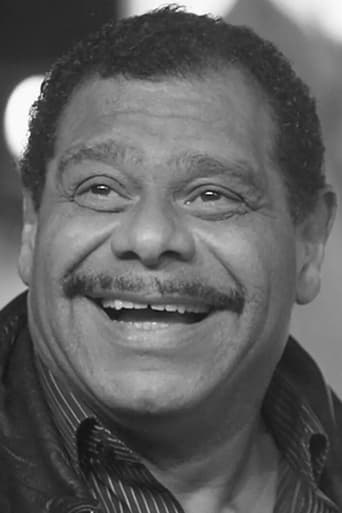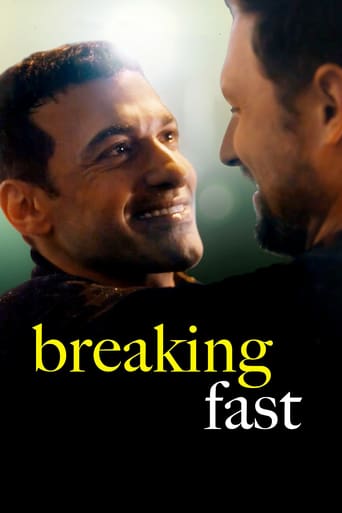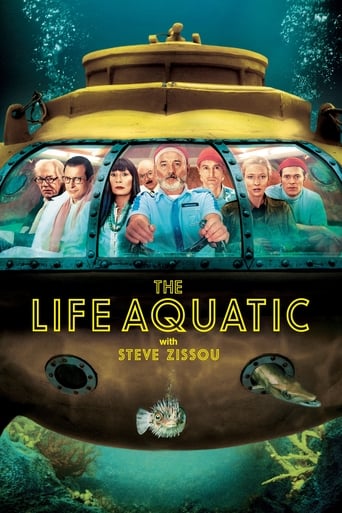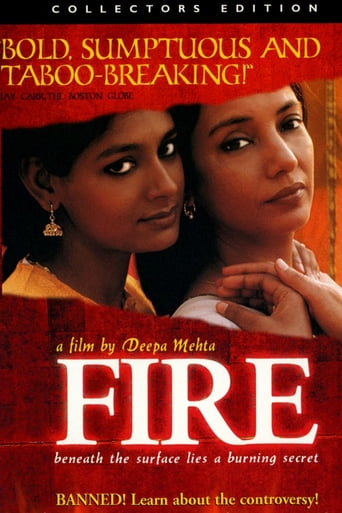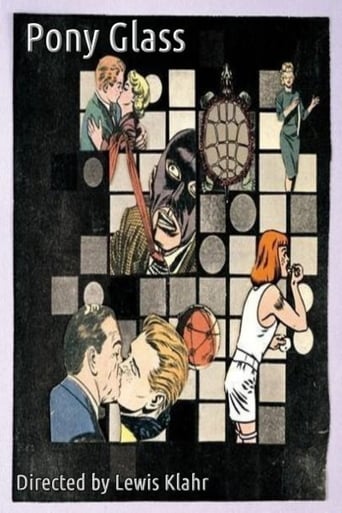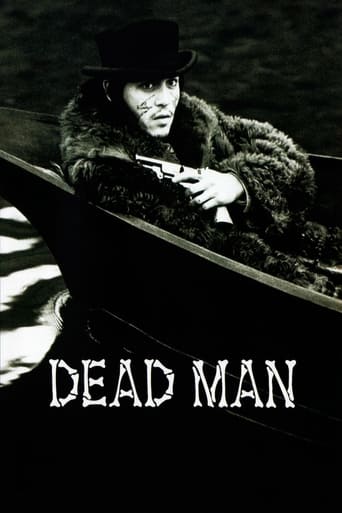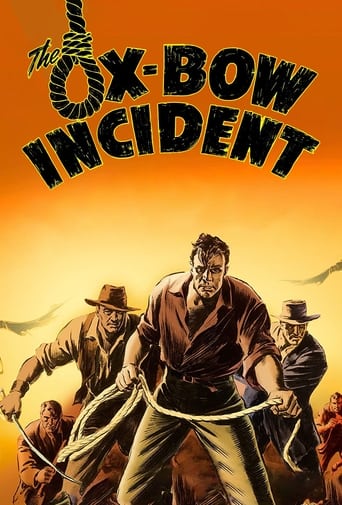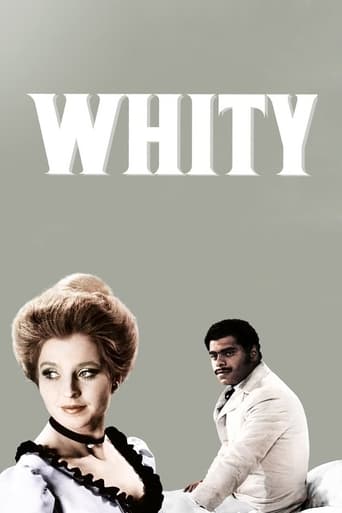
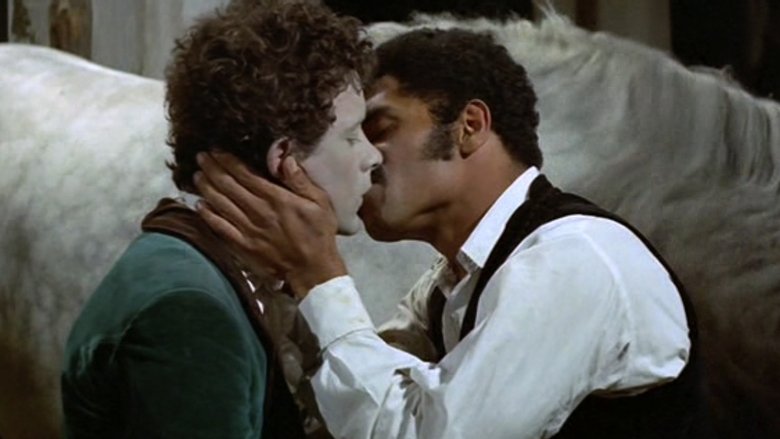
Whity (1971)
"Whity" is the mulatto butler of the dysfunctional Nicholson family in the American southwest in 1878. The father, Ben Nicholson, has an attractive young wife Katherine, and two sons by a previous marriage; the homosexual Frank, and the retarded Davy. Whity tries to carry out all their orders, however demeaning, until various of the family members ask him to kill some of the others.
Watch Trailer
Cast


Similar titles
Reviews
I barely got through this movie, this kind of half-western half super-dark satire on racism and slavery that makes Bamboozled look like Fraggle Rock... So why the high rating? Possibly just because there's nothing else quite like it. It's about a slave, dubbed Whity by his master/family for his propensity for 'sucking up' (Günter Kaufmann, a frequent actor in Fassbinder's stockade of sorts, who I still can't tell whether or not he's actually a good actor or appears to be so), and his master (Ron Randell) and his family, which includes a wife and two children, one retarded and one homosexual, and there are sometimes very strange requests or orders- like killing other members of the family for things like obvious adultery or the murder by the master of said adulterer (I think that's what happened at one point).One of the things about the movie that's just totally weird, and yet very weirdly effective, is that the slave owner and family have white make-up put over their already white faces (again, the inverse of Bamboozled, only here not so smug about it being "hey, it's satire!"), and that all of the characters- save maybe for a few minor characters or a supporting one like the saloon singer who falls for Whity- have an affected way of speaking, deliberate like everyone is under some strange spell. What is it all a symbol for? I think, maybe, that racism is so ugly and horrible a thing one can barely ever capture how it affects everyone around them, white or black (the only somewhat down-to-earth figure, Whity's mother played very convincingly by Elaine Baker, is all too brief in the mix for a reason). Fassbinder uses the backdrop of the old west, of a kind of fragmented version of it (he uses sets from other movies, intentionally I'd wager), where this savage but almost meditative story can take place.Whity shouldn't be something to see right away if you're just getting into Fassbinder - since I'm one of them, I can attest to it being a difficult film - but there's a power about it, some really unique pull to it in some scenes (watch when Whity asks the retarded boy to come over the comb the horse, very tense, erotically so but cruel), that it's hard not to find it at some point if you become an admirer of the prolific German's oeuvre. I'm not even sure I would watch it again, but I know I didn't exactly regret the chance at witnessing risky art.
When is a Western not really a Western? When it’s directed by Fassbinder! WHITY is only my sixth film from the so-called German wunderkind: I admire Fassbinder for his prolific and versatile output, though I’ve yet to be won over completely by a film of his; frankly I was hoping this would prove to be the one – but, as it turned out, I couldn’t have been more wrong! For the record, I’ve got four more titles from him to watch: still, considering my dismal experience with WHITY (especially since I had fully expected it to be the most accessible of the lot!), I don’t know when I’ll muster the courage to get to them now…even if DESPAIR (1978) is a reasonably enticing title, given the participation of Dirk Bogarde and the Vladimir Nabokov source.To be fair, the Western ambiance is delivered in spades throughout. The film was stunningly shot in Widescreen – by Michael Ballhaus (later a valued collaborator of Martin Scorsese) – in Almeria, location site of many a Spaghetti Western. It generally has the right feel for time and place with regards to settings and wardrobe, while the all-important score is highlighted by a decidedly infectious riff. Even so, the repertoire of English-language ballads (the bulk of the film, of course, is in German) allotted to chanteuse/prostitute Hanna Schygulla – not to mention her own affected delivery – is inappropriately modern and comes across as unintentionally laughable! Schygulla was a fixture in Fassbinder’s work; the film also features Ron Randell (best-known, if at all, for playing Christ’s attorney[!] in Nicholas Ray’s KING OF KINGS [1961]) and Ulli Lommel (who later graduated to directing himself, notably TENDERNESS OF THE WOLVES [1973] and THE BOOGEYMAN [1980]).The overriding pretentiousness at work here is palpable above all in the film’s lethargic, indeed deadly, pace (never have I seen a movie in which the characters moved more s-l-o-w-l-y!). Besides, it isn’t helped by unsympathetic (even annoying) characters – mostly members of a dysfunctional family (and particularly the pasty-faced, frizzy-haired sons of landowner Randell) – indulging in all manners of transgressions (from such commonly-depicted capital sins as greed, lust and murder down to nymphomania, masochism, interracial relationships and incest!). In the midst of all this is an unsavory gay subtext which, inevitably, seems to be on the agenda of virtually all directors so inclined in real-life (but becoming obviously more pronounced in the liberalized modern cinema)! The plot, for what it’s worth, is reminiscent of Pier Paolo Pasolini’s THEOREM (1968) – coincidentally another gay parable – as the life of everyone involved is influenced in some way by the household’s black manservant (the character bears the ironic titular nickname but is also curiously underwritten and inexpressive), who’s actually the fruit of Randell’s illicit affair with his frumpy colored maid! The fact that each, in turn, pleads with him to slay the other could have turned this into a pointed black comedy – but the film is simply too labored and deliberately self-conscious for the subtlety intrinsic to such refined treatment... In the end, one should note that 1971 saw a boom of arty Westerns with other such offerings as Alexandro Jodorowsky’s EL TOPO, Peter Fonda’s THE HIRED HAND and Robert Altman’s McCABE AND MRS MILLER. As for WHITY (whose shooting, by the way, inspired Fassbinder’s own BEWARE OF A HOLY WHORE [1971]), I had owned the Fantoma DVD – which includes an Audio Commentary from Ballhaus and Lommel – for quite a while before actually sitting down to view it. I’d purchased the disc through the company’s own website during a sale but, as I said, could only manage to find a slot for it in my hectic/eclectic schedule after having enjoyed a couple of equally stylized (but far more satisfying) Spaghetti Westerns – DEATH SENTENCE (1968) and YANKEE (1966) – earlier this week.
Seemingly a triumphant parable about a slave's emancipation from a cruel, inbred patriarchy, Fassbinder's outré Spanish Western employs a unique hybrid of incisive, scabrous character examination, eerie stretches of silence, and a deadpan editing scheme that makes empathy desirable but never attainable. The eponymous character is the son of despotic aristocrat Ben Nicholson, whose children look and behave like grotesque zombies (their faces are caked with a putrid green sheen of powder), whose wife is a sexually manipulative hussy, and whose one-time mistress (and Whity's mother) is the other servant in the house, a proud anthem-singing woman whose charcoal-darkened face renders her an indistinguishable void.This artificial hue also serves as a contrast to Whity (Günter Kaufmann), who is caught between fealty to the father and his tradition of old money, and his mother's tradition of slavery. In the film's first scene, Whity tells his mother that "black music" isn't welcome in the house; she responds by spitting in his face and derisively labeling him "Whity." Such an extreme example of stratification illustrates Whity's dual identity and his confusion about how he'd like to be perceived. The mother's rebuke is especially cruel when one considers her role in his figurative schizophrenia (copulating with her white master) and the selfsame compromise of racial identity inherent in his conception.There are further signs of ambiguity: he dresses to the specifications of his masters, looking the part of an Uncle Tom in the opening tilt shot, which pans slowly up Whity's body from his spit-shined shoes to his immaculate red dust jacket; he proudly pledges his gratitude after severe beatings; and he may be romantically involved with Nicholson's disabled son. Whity's brutal turn in the final sequence, in which he methodically executes the entire family, is a particularly definitive choice of identity, though hardly, from an outside perspective, one of vindication or clarity given Whity's contrary choices (or are they necessities of survival?) throughout the film. Like the other two Fassbinder films I've seen—The American Soldier and Rio Das Mortes—character motivations, intentions, and actions are anything but clear-cut, and the director is prone to self-amusing stretches of bizarre revelry. But also similar to those films is a sense of spontaneity and social conscience along with an analytical rigor that reminds me of a less-polished and less self-regarding Godard. If his later films are equally resistant to the cinema of spectacle (of which the closest he's come is the extraordinary ending to The American Soldier), I may yet come to fully appreciate this most enigmatic auteur.
I recently watched the DVD of "Whity", Fassbinder's German Western. After seeing it, the fact that all the character's speek German despite the Spanish locations didn't seem out of tune at all with the overall movie. For the record the commentary on the DVD is one of the greatest I've heard. However, Ulli Lommel and Michael Ballhaus both agree that this is Fassbinder's 5th movie. That would mean this amazingly photographed, sweeping epic--which boasts by far the best production designs of any of Fassbinder's first movies--followed the crude looking excruciating black comedy "Why Does Herr R. Run Amok?" I find this a bit hard to believe. Judging by the fact that Lommel and Ballhaus make a few factual mistakes (this was not the first Fassbinder movie with Günther Kaufmann, "Gods of the Plague" was), maybe they're a bit off. My guess is probably number 8 or 9. If it is number 5, that's amazing.Anyhow, this is easily the most polished of Fassbinder's first movies. It's also probably up there with "The American Soldier" in terms of perverse bizarreness. You'll find lots of flaggelating, KKK, incestual undertones, homoerotism, prostitutes, bleached eyebrows and eyelashes, bad hair, greenish-white cakey makeup, and some severe mental retardation all in these frames. The odd thing is, none of it seems to be played for laughs, which only adds to the perversity. Fassbinder thought this movie was so personal to him that he didn't want anyone else to see it, or any movie theaters to show it.Also of note, the ending of this movie is highly unusual for Fassbinder. No suicide, no crying, no corpses? I guess for the final shot, Fassbinder had his convertable engine running so he could drive off forever into the distance the second it was completed. It just seems directors don't have that type of dedication or personal anguish attached to their movies anymore. All the more reason to keep watching Fassbinder's I guess.


